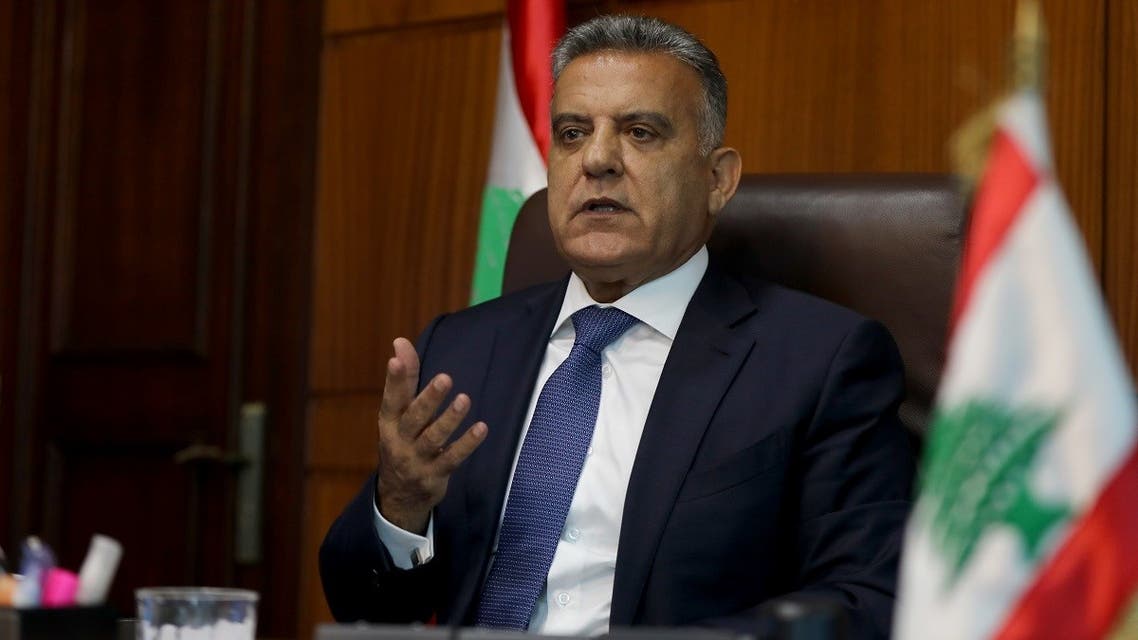
By Joyce Karam — thenationalnews.com — The head of Lebanon’s main intelligence agency has held talks with senior US officials in Washington to discuss resuming negotiations with Syria on the release of American hostages, including Austin Tice. Maj Gen Abbas Ibrahim, who heads Lebanon’s General Directorate of General Security, was flown to Washington on a private flight organised by the US government. He met with senior White House, State Department and intelligence officials in his first visit since President Joe Biden took office in January 2021. In an exclusive interview with The National on Tuesday, he said the release of Tice, a freelance journalist and former marine who disappeared while reporting in 2012, was a top item at talks.
Lebanon fosters unique role in freeing Western hostages “We discussed Mr Tice’s file and we agree that it has to make progress, but we have to see first how we can bridge the gap, how to bring the views closer between Washington and Damascus,” Maj Gen Ibrahim said. Maj Gen Ibrahim leads Lebanon’s most powerful security service after the military and has a reputation as a savvy negotiator who has helped to secure the release of US residents and citizens such as Sam Goodwin, a tourist who had been held in Syria, and Nizar Zakka, a Lebanese businessman with US permanent residency who was released from Iranian custody in 2019. He also successfully mediated the release of Canadian tourist Kristian Lee Baxter in 2019 after he was detained in December 2018 by Syrian authorities while on holiday. There is now the possibility that negotiations will pick up from where they left off at the end of former president Donald Trump’s term in November 2020. “We came very close during Mr Trump,” Maj Gen Ibrahim said.
Those talks over the release of Tice involved demands by Syrian President Bashar Al Assad’s regime for the withdrawal of US forces from Raqqa, the resumption of US diplomatic relations with Syria and the lifting of some sanctions. “These [demands] were too good to be true. We are exploring where we can resume from,” the Lebanese spy chief said. Maj Gen Ibrahim met Tice’s mother twice during his three-day visit to Washington and said Syria has not provided clear answers about her son’s health or the conditions of his detention. “We are not sure that Mr Tice is alive, no one is sure, I can’t be sure without an assurance from Syria that he is,” he added. “I am going to go see them [in Syria] after this.”
During the Syrian war, the Lebanese military leader brokered two major releases from Syria. In 2013, he secured the release of a group of Lebanese Shiite pilgrims held by rebels near the Turkish border and in 2014, he mediated the release of a group of Greek Orthodox nuns abducted by Al Qaeda’s Syria affiliate from their convent in Maaloula. Maj Gen Ibrahim noted a renewed interest from Mr Biden on Tice’s case.
The president met the Tice family this month and “reiterated his commitment to continue to work through all available avenues to secure Austin’s long overdue return to his family”, former White House press secretary Jen Psaki said at the time. Inside Lebanon, Maj Gen Ibrahim is primarily concerned about the risks of social implosion due to the economic collapse in Beirut. “We are worried about social instability in Lebanon more than political one, the people have the right to respond to the currency collapse but we don’t want it to turn into chaos,” he said. Following elections on May 18, the risk of political paralysis has grown, Maj Gen Ibrahim assessed.
The elections “could spell a disaster, because we have big political blocs with a widening gap between them on issues, but no majorities to pass laws”, he said. And as to the issue of maritime demarcation between Israel and Lebanon that Washington’s envoy Amos Hochstein has been trying to mediate, Maj Gen Ibrahim said the US is awaiting Beirut’s response. “Amos gave us a written proposal … I think it deserves a response. We have to respond,” he said.
Regionally, Maj Gen Ibrahim saw Iran and Israel engaged in an “open intelligence war”, in light of the latest assassination of an Islamic Revolutionary Guard Corps colonel in Tehran on Sunday, and Iran’s strike on a facility reportedly used by Isreal in Erbil, Iraq, in March. Asked if Hezbollah would be dragged into any response, Maj Gen Ibrahim saw it as unlikely. “We don’t have concerns at this point that Hezbollah would retaliate from Lebanon for an operation that happened in Iran,” he said. During his visit, Maj Gen Ibrahim met Middle East co-ordinator Brett McGurk as well as senior officials from the State Department and the intelligence community. He is also participating in a gathering hosted by Hostage Aid Worldwide, an organisation dedicated to freeing US hostages.



